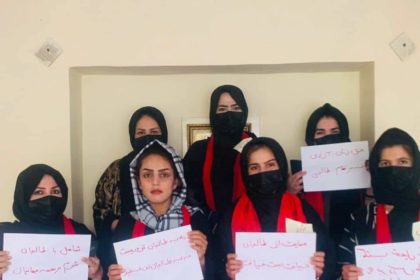RASC: Following the de-Persianization in various institutions of the country, Qari Mohammad Yunus Rashid, deputy of youth affairs of the Ministry of Information and Culture of the Taliban group, stated that Afghanistan does not need Persian literature.
During a meeting with the youths in Bamyan province, he stated that Afghanistan does not need Persian literature and there is no need for us to learn Persian language and literature.
On Wednesday, August 2, during a meeting with the youths in Bamyan, Qari Yunus emphasized on the expertise and empowerment of the youths and said that the youths should learn disciplines and professions through which we can prepare advanced war tools.
The Deputy Minister of Information and Culture said that teaching Persian literature in universities is an unimportant and pointless issue and stated that there is no need to learn Persian literature.
It has been said that Qari Yunus had traveled to this province to hear the problems of the youths of Bamyan, he held a discussion with the youths of this province at the Ghulghula hotel.
It is reported that in this speech, a Tajik youth from Bamiyan attacked the governor of Bamiyan and said that the Taliban group’s view is an ethnic and language-oriented one.
He stated that the governor of the Taliban group in Bamyan has a good attitude towards the Shia people and considers himself their supporter, but in practice, he does not consider it permissible to eat bread from the table of the Shia.
He stated that Persian speakers of the Sunni religion have eaten bread from the hands of the Shia people of Bamiyan for a lifetime and have good relations with them and are familiar with all Shia traditions.
He added that when the ruler of a province and a system that considers itself Islamic considers the followers of a great religion of Islam impure, it is not expected that their language and dialect “Persian language” will not be respected.
This is despite the fact that with the attack of the Taliban group on the country, the arena for Persian speakers everywhere, especially government and academic institutions, has become narrower and all affairs are done in Pashto language.






